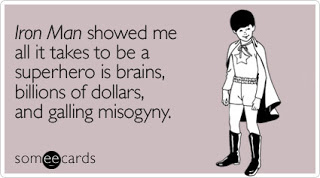Last October, Stephanie reviewed Rachel Getting Married after seeing it in the theater. After rereading her post, I’d like to offer my response.
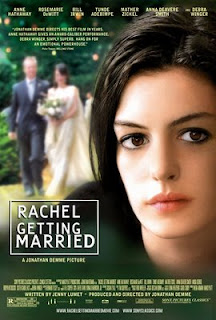
 First, the poster is a poor representation of the film. While you could argue that Kym (Hathaway) is the main character, the movie is really about her and her sister, Rachel (DeWitt). The background of the movie is much more in the foreground, unlike the poster. All the characters in the film are complicated, conflicted, and ultimately complicit in the family tragedy. What Stephanie said about the anger and guilt rings true, as well as the unsentimental nature of the story. Each character behaves in cruel, selfish ways; Kym’s narcissistic, inappropriate speeches counter Rachel’s bratty outbursts of jealousy. Yet there are some weak points in an otherwise very, very good movie.
First, the poster is a poor representation of the film. While you could argue that Kym (Hathaway) is the main character, the movie is really about her and her sister, Rachel (DeWitt). The background of the movie is much more in the foreground, unlike the poster. All the characters in the film are complicated, conflicted, and ultimately complicit in the family tragedy. What Stephanie said about the anger and guilt rings true, as well as the unsentimental nature of the story. Each character behaves in cruel, selfish ways; Kym’s narcissistic, inappropriate speeches counter Rachel’s bratty outbursts of jealousy. Yet there are some weak points in an otherwise very, very good movie.
The mother, Abby (Winger), always stays on the periphery of the story, with both sisters desiring her comfort and love.  Her inability to give her daughters what they want is realistic, but in a film where the two main characters change over the course of a weekend, and grow to accept each other in subtle ways, an unchanging, hard mother stands out and takes on the role of the ‘responsible party’ in the family’s tragedy. Her coldness and distance, compared to the father’s overbearing nurturing of his daughters (he’s constantly stroking faces and fixing food), makes her an easy target for blame. The reversal of stereotypical gender-based reactions to tragedy is particularly interesting, but I wonder if the flip is too complete, too easy. In other words, does the mother simply become the father? What kind of love are the sisters looking for from their mother? Do they need something from their father? If so, what?
Her inability to give her daughters what they want is realistic, but in a film where the two main characters change over the course of a weekend, and grow to accept each other in subtle ways, an unchanging, hard mother stands out and takes on the role of the ‘responsible party’ in the family’s tragedy. Her coldness and distance, compared to the father’s overbearing nurturing of his daughters (he’s constantly stroking faces and fixing food), makes her an easy target for blame. The reversal of stereotypical gender-based reactions to tragedy is particularly interesting, but I wonder if the flip is too complete, too easy. In other words, does the mother simply become the father? What kind of love are the sisters looking for from their mother? Do they need something from their father? If so, what?
Aside from what I see as the incomplete characterization of the mother, something that really bothered me is something I simultaneously love: the lack of back story. While it makes us more present in the film, it endlessly thwarts attempts at a reading. The documentary-style filming, too, frustrates viewers by hiding as much as it reveals. The family trauma is made abundantly clear, maybe too much so. In the first scene, we learn from a fellow rehab patient that Kym killed someone with a car. Once she gets home and stands for a moment in an empty child’s room, we can guess what has happened. We get several additional scenes that explain every detail of the accident. Yet, that’s not the source of her addiction. Kym was some sort of teen model, gracing the cover of Seventeen magazine while blasted on horse tranquilizers, and her family had the kind of money (whether it was hers or not) to send her to the premium rehab facilities.
Also, it’s impossible to ignore the multicultural cast of friends and family. We don’t know how a Connecticut WASP family came to be part of such a rockin’ crew, or how the bride and groom’s families all became so comfortable with each other on their very first meeting.  While I admire the post-racial aspirations of the film, and thoroughly enjoyed the music, the actors seem more like Jonathan Demme’s crew than two families joining for the first time. The mixing of cultures (Caribbean and Hindu, specifically, with those intimate with “Connecticut’s complicated tax structure”) plays naturally in the movie, and never feels like a co-optation, but compared with the stark realism of the primary relationships, leaves viewers asking questions, testing our willing suspension of disbelief. I’d love to read the screenplay (written by Jenny Lumet), and see how my issues with the film manifest in the (original) script, and how much is Demme’s indulgence.
While I admire the post-racial aspirations of the film, and thoroughly enjoyed the music, the actors seem more like Jonathan Demme’s crew than two families joining for the first time. The mixing of cultures (Caribbean and Hindu, specifically, with those intimate with “Connecticut’s complicated tax structure”) plays naturally in the movie, and never feels like a co-optation, but compared with the stark realism of the primary relationships, leaves viewers asking questions, testing our willing suspension of disbelief. I’d love to read the screenplay (written by Jenny Lumet), and see how my issues with the film manifest in the (original) script, and how much is Demme’s indulgence.
While this may seem like a negative review, the preceding are really my only complaints. I watched the movie twice, and liked it even better the second time around. I haven’t seen such a realistic family drama, with women who break common decency while ultimately remaining sympathetic characters. Further, I’m fascinated by stories that deal with the aftermath of the worst kinds of traumas, and that explore how we come to deal with the unfathomable, the unforgivable, and the unforgettable.
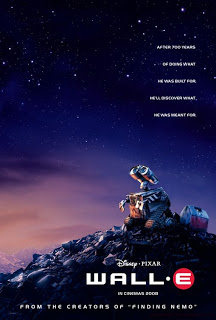


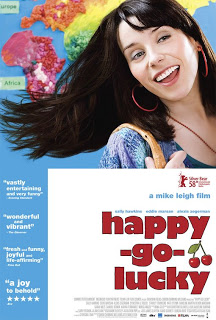


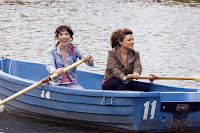


 First, the poster is a poor representation of the film. While you could argue that Kym (Hathaway) is the main character, the movie is really about her and her sister, Rachel (DeWitt). The background of the movie is much more in the foreground, unlike the poster. All the characters in the film are complicated, conflicted, and ultimately complicit in the family tragedy. What Stephanie said about the anger and guilt rings true, as well as the unsentimental nature of the story. Each character behaves in cruel, selfish ways; Kym’s narcissistic, inappropriate speeches counter Rachel’s bratty outbursts of jealousy. Yet there are some weak points in an otherwise very, very good movie.
First, the poster is a poor representation of the film. While you could argue that Kym (Hathaway) is the main character, the movie is really about her and her sister, Rachel (DeWitt). The background of the movie is much more in the foreground, unlike the poster. All the characters in the film are complicated, conflicted, and ultimately complicit in the family tragedy. What Stephanie said about the anger and guilt rings true, as well as the unsentimental nature of the story. Each character behaves in cruel, selfish ways; Kym’s narcissistic, inappropriate speeches counter Rachel’s bratty outbursts of jealousy. Yet there are some weak points in an otherwise very, very good movie.

